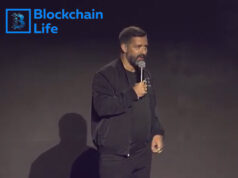Jamie Dimon, CEO of JP Morgan Chase, has long been one of the most vocal critics of Bitcoin, famously labeling it a “fraud” in 2017. However, in a recent interview with Leslie Stahl of CBS, Dimon displayed a more nuanced stance on the broader cryptocurrency ecosystem. Dimon remains skeptical of Bitcoin’s viability as a currency. However, he acknowledged the transformative potential of blockchain technology and its applications, particularly in financial operations. His comments underscore the complex relationship between traditional finance and emerging decentralized technologies, shedding light on how the industry is adapting to these innovations.
Bitcoin: Still Under Scrutiny
Dimon’s criticism of Bitcoin as a speculative asset and an inefficient means of transaction has not wavered. He did not mince words about his doubts regarding Bitcoin’s practical value as a currency, noting its volatility and lack of intrinsic value. This perspective aligns with his historical position, where he has questioned Bitcoin’s utility beyond being a speculative investment vehicle. However, unlike in the past, Dimon’s remarks this time avoided outright dismissal of cryptocurrencies as a whole.
Blockchain: A Game-Changer for Finance
In stark contrast to his views on Bitcoin, Dimon expressed strong support for blockchain technology. JP Morgan has been a pioneer among traditional financial institutions in adopting blockchain-based solutions. During the interview, Dimon highlighted the bank’s use of blockchain for intraday repo transactions and secure data movement, demonstrating how distributed ledger technology can improve efficiency and transparency in financial systems.
He also pointed to the potential of tokenized assets, such as real estate and securities, and stablecoins, which offer price stability compared to traditional cryptocurrencies like Bitcoin. Dimon’s remarks reflect a broader acceptance of blockchain’s utility in optimizing financial processes while mitigating risks often associated with unregulated digital currencies.
The Call for Regulatory Clarity
Dimon’s support for blockchain comes with a caveat: the need for regulatory oversight. He emphasized the importance of establishing clear and robust frameworks to govern the use of stablecoins and other blockchain-based financial tools. Regulatory clarity, according to Dimon, is essential for fostering innovation while protecting consumers and ensuring systemic stability. His comments echo a growing sentiment among industry leaders. They are advocating for balanced regulation to address the risks of fraud, volatility, and misuse without stifling technological progress.
Geopolitical and Economic Considerations
Dimon’s cautious optimism about blockchain also intersects with his concerns about global economic stability. He described the current geopolitical environment as the most complex since World War II, citing conflicts in Ukraine and the Middle East, rising inflation, and the strategic rivalry with China. Blockchain, the JP Morgan CEO suggested, could play a role in strengthening financial systems and enhancing resilience in a rapidly changing global landscape.
Bridging Traditional and Decentralized Finance
Dimon’s remarks reveal a pragmatic approach to the integration of decentralized technologies within traditional financial systems. By distinguishing between cryptocurrencies like Bitcoin and blockchain’s broader applications, he signals a path forward where traditional institutions can leverage decentralized innovations to enhance efficiency and accessibility.
>>> Read more: JP Morgan Exposed: Bitcoin a Ponzi Scheme or Not?
Jamie Dimon’s evolving stance on cryptocurrencies and blockchain reflects the ongoing transformation within the financial industry. While his skepticism of Bitcoin remains steadfast, his endorsement of blockchain technology and stablecoins highlights a shift toward embracing innovation within a regulated framework. For crypto enthusiasts and skeptics alike, Dimon’s comments underscore the importance of balancing caution with ambition as the industry navigates the complexities of the digital financial revolution.









